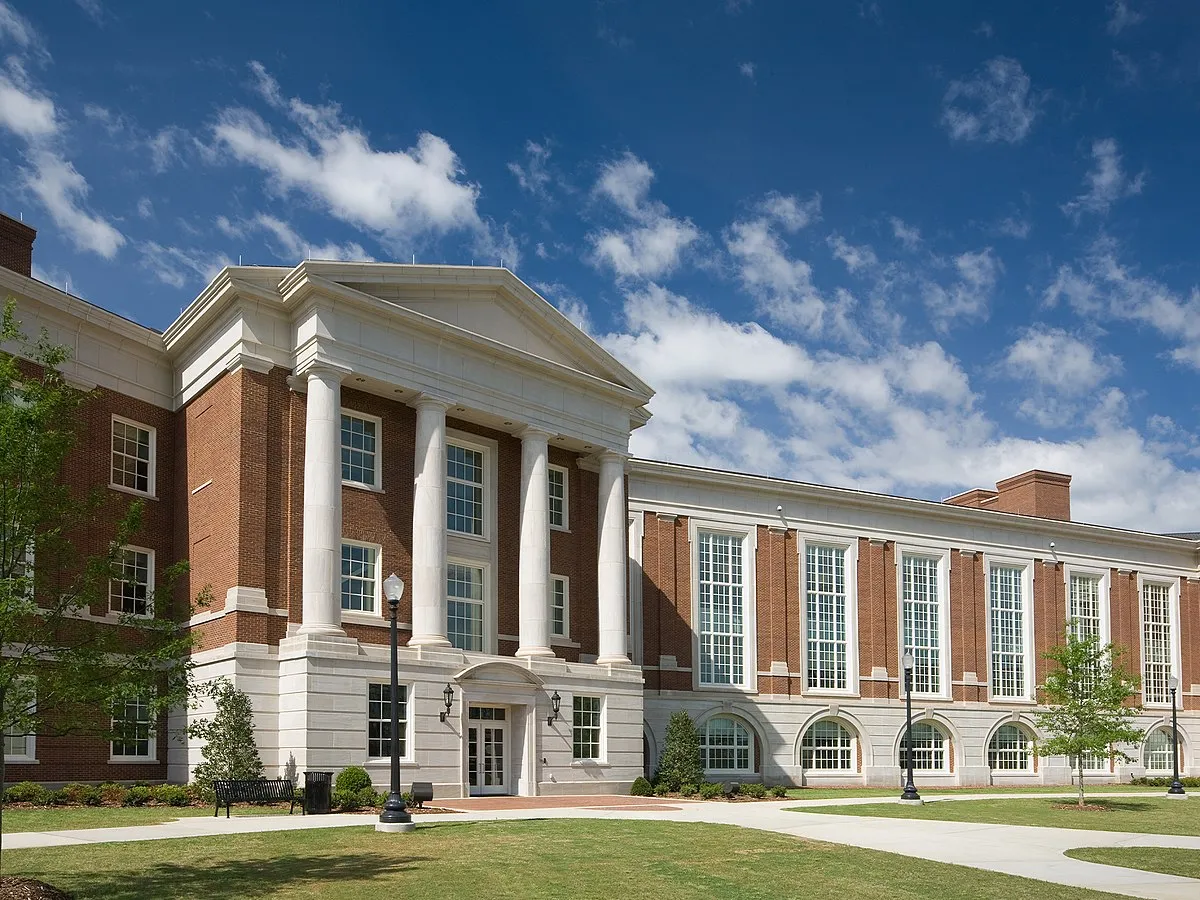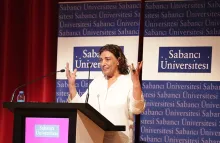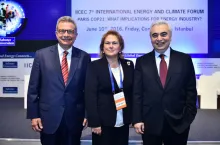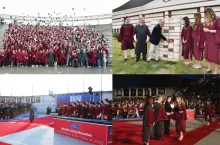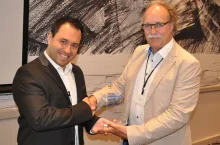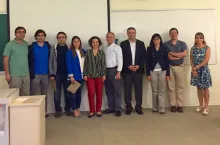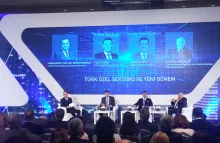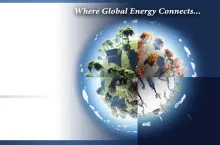IICEC 7th International Energy and Climate Forum was held
The 7th International Energy and Climate Forum of Sabancı University’s International Center for Energy and Climate (IICEC) was held.
Sabancı University Founding Board of Trustees Chair Güler Sabancı: “Transforming the energy sector is essential for addressing the climate challenge”
Executive Director of the International Energy Agency (IEA) and Honorary President of IICEC Steering Committee Dr. Fatih Birol: “Decline in investments complicates the future”

7th International Energy and Climate Forum of Sabancı University’s International Center for Energy and Climate (IICEC) was held in Istanbul.
Speaking in the opening of the Forum, Sabancı University Founding Board of Trustees Chair Güler Sabancı said:
- “We have to work together to contribute in efforts to lower emissions while supporting continued economic growth and expanding modern energy access.”
- “Energy efficiency is key as a climate change action as well as for sustainable development.”
- “According to IEA, reducing emissions by 40% to limit global temperature increase to less than 2 degrees centigrade would potentially come from energy efficiency.”
- “Turkey has a large untapped potential for energy efficiency along the supply-demand chain, starting from generation through transmission and distribution to final consumption.”
- “We need to consider means to promote further liberalization of energy markets, which is also key to sustainable growth of the overall economy.”
- “Turkey needs to utilize its local energy resources, including lignite to alleviate the current account deficit while ensuring energy security in its growing energy market and economy.”
Executive Director of the International Energy Agency (IEA) and Honorary President of IICEC Steering Committee Dr. Fatih Birol:
- “We are on a transition to a cleaner energy future. Energy and technologies are becoming cost-effective.”
- “Oil investments declined two years in a row, which happened for the first time.”
- “Low prices bring reductions in investments. This will complicate the future.”
- “According to our analyses, wind power can be generated one-third cheaper. And the cost of solar power is now 80 percent reduced.
The 7th International Energy and Climate Forum of Sabancı University’s Istanbul International Center for Energy and Climate (IICEC) was held in Istanbul.
The Forum began with the participation of executives of international energy organizations, including: Undersecretary of UAE Ministry of Energy Dr Matar Al Neyadi, Special Advisor of the Prime Minister of Japan Mr Eiichi Hasegawa, Ambassador of European Union to Turkey Mr Hansjoerg Haber, Ambassador of Ukraine to Turkey Sergiy Korsunskiy, MP of Konya and President of the Industry, Energy, Natural Resources, Information and Technology Committee Ziya Altunyaldız, IEA Executive Director and IICEC Honorary President Dr Fatih Birol.
IICEC is a distinguished platform
“We are very much pleased to see that IICEC’s role as a globally recognized center, where global energy connects, is growing as a distinguished platform to exchange ideas for a better energy future” said Sabancı University Founding Board of Trustees Chair Güler Sabancı during her opening speech to the Forum.
Emphasizing that the IEA has adopted a new and stronger vision under the leadership of Dr Birol, who empowers strategies for an IEA that embraces emerging countries of the world and pursues a global energy system which is more secure, efficient and sustainable, Güler Sabancı expressed her sincere thanks to the speakers who shared their insights on energy security, economic development, competitiveness and environmental awareness.
Nothing less than a historic milestone
Güler Sabancı underlined that IICEC would continue to contribute to energy and climate related topics with future research studies, and added:
“The global energy system continues to pose very diverse challenges as well as significant opportunities. These challenges and opportunities largely evolve in today’s dynamic world with a variety of global trends such as urbanization, digitalization, connectedness and electrification posing new dimensions as to how the energy sector of today will transform. In this very dynamic energy landscape, last year’s historical agreement in Paris COP21 meeting perhaps is the most critical development in shaping the future of the global energy supply and demand.”
Speaking of the international agreement negotiated in Paris and the direction set for combating climate change within the next decade and beyond, Sabancı said: “Energy was at the center of the discussion. The Paris Agreement is nothing less than a historic milestone for the global energy sector. The whole world is united in its commitment to the global goals embodied in the Paris Agreement as well as to the means by which to achieve them.”
Transforming the energy sector is essential for addressing the climate challenge
Underlining that energy production and use account for two-thirds of global greenhouse gas emissions, Güler Sabancı said “transforming the energy sector is essential for addressing the climate challenge”.
“The latest IEA statistics demonstrate decoupling of economic growth from carbon emissions in member countries” noted Güler Sabancı, and added: “According to new data, global renewable generation capacity increased by 152 gigawatts or 8.3% during 2015, which is the highest annual growth rate on record, and about twice the total installed capacity of Turkey. We witness the rise of distributed generation, smart grids and storage technologies that are rapidly changing the way energy is supplied and consumed. Oil majors are increasingly moving into clean energy markets. Japan now has more electric charging points than petrol stations.”
Investments in energy efficiency should be accelerated
Güler Sabancı emphasized that energy efficiency regulations currently cover 27% of the world’s energy consumption, reminding it was 12% back in 2005, and continued her words:
“Recently, we heard a lot of exciting news highlighting the development of energy industry towards a more sustainable future. The Paris Agreement will no doubt speed up the transformation of the energy sector by accelerating investments in cleaner technologies and energy efficiency. Yet, driving even stronger action in all areas to lower emissions will require greater engagement and effort by all stakeholders. We can work together to contribute in efforts to achieve a lower emissions pathway while supporting continued economic growth and expanding modern energy access. I strongly believe that there is much to improve with regard to energy efficiency. Energy efficiency is key as a climate change action, as well as for sustainable development.”
We need to work harder on global solutions
Noting approximately 40% of the emission reduction required by 2050 to limit global temperature increase to less than 2 degrees centigrade would potentially come from energy efficiency, according to an analysis by the International Energy Agency, Sabancı mentioned that bridging the energy efficiency gap requires financial institutions to channel more capital flows for energy efficiency.
“Policy-makers also have to address barriers and stimulate energy efficiency intestment through supportive energy policy frameworks” said Güler Sabancı, and added: “We need to work harder on solutions to improve energy efficiency along the energy supply-demand chain globally.”
Wind and solar power generations capacities are to be increased
Explaining that the Paris Agreement is an important development for Turkey as well, Güler Sabancı said:
“Turkey declared her aim to contribute to the collective efforts to combat climate change by submitting her Nationally Determined Contribution within the context of the Paris Agreement as up to 21% reduction in emissions from the Business-As-Usual level by 2030.
The Nationally Determined Contribution, the so-called NDC, includes both qualitative and quantitative targets in energy production and use. Wind and solar power generation capacities are set to increase significantly until 2030. Tapping the full hydroelectric potential and introduction of nuclear energy into the power generation mix are among the NDC targets. NDC encompasses the target of reducing electricity transmission and distribution losses that is critical for an improved energy balance for Turkey. And the last but not the least, enhanced energy efficiency across different sectors such as industry and buildings is an important pillar of the NDC.”
Turkey has a large untapped potential for efficiency
Mentioning that Turkey has a large untapped potential for energy efficiency along the supply-demand chain, starting from generation through transmission and distribution to final consumption and speaking of the necessity to intensify efforts towards utilization of this very important potential in a cost-effective way, Güler Sabancı continued her words:
“I certainly believe that the major gains in our emissions reduction pathway will come from energy efficiency, if we manage to act timely and effectively. I should also give you heads up that current low oil, gas and coal prices may well complicate the transition to a cleaner energy future. At this juncture, I would like to pinpoint that liberalized electricity and natural gas markets, without any type of subsidies, are essential for improving energy efficiency. Energy subsidies in Turkey, as also experienced in some other countries, work against energy efficiency. Therefore, we need to consider means to promote further liberalization of energy markets, which is also key to sustainable growth of the overall economy. Turkey, as a large energy importer, needs to utilize its local energy resources, including lignite to alleviate the current account deficit while ensuring energy security in its growing energy market and economy. Therefore, utilization of local resources in sustainable manner, by use of best available technologies and prioritizing health, safety and environment objectives need to be considered as an integral part of a well-balanced and holistic approach to energy and climate objectives.”
Demand-side participation into the energy markets is required
Commenting on energy technologies and the need for new business models, Güler Sabancı concluded her words:
“Energy landscape is in a rapid change globally. Energy technologies are emerging and being deployed in an impressive fashion. In this very context, I believe that demand management, demand side participation into the energy markets, wider use of distributed generation options, smart grid development and electricity storage solutions will all play an important role in transformation of the Turkish energy sector. Turkey, with its dynamic population, effective energy management and enthusiastic energy actors is well positioned to play a leading role in wider energy transformation. We, as policy makers, regulators, industry, market players and academia, can intensify our cooperation and efforts to bring this vision into a reality.”
Speaking after Sabancı, Executive Director of the International Energy Agency (IEA) and Honorary President of IICEC Steering Committee Dr Fatih Birol discussed critical energy transformation in the energy market, especially green energy, explaining “We are on a transition to a cleaner energy future. Energy and technologies are becoming cost-effective.”
Birol said, “The energy sector provides employment to a lot of people. In today’s world, no country is a fortress in terms of energy. Developments in the Middle East or USA or Japan have global ramifications. Changes in oil prices will in turn affect coal prices. New technologies will hae an impact on everyone”, explaining that the majority of the transformation in the energy business concerns the use of new technologies and that changes in energy markets are globally effective.
Noting all energy resources are cheaper, Dr Fatih Birol underscored the outcomes of Paris COP21 meetings. “We need energy to make the world comfortable. 20 percent of the world population still does not have access to electricity. Energy is the primary component of economic development and life. According to the growth estimates, energy demand in rich countries slowed down, even regressed. Emerging countries are the source of the growth” said Birol.
“Oil price is fixed at 52 dollars, I do not expect any more increase”
Fatih Birol said, “Investments have been on the decline since last year. We had never witnessed a decline in oil investments two years in a row. Typically, an increase would follow a one-year decline. This year breaks the mold”, emphasizing the investment decline in oil markets.
Explaining oil price was 30 dollars in January, and is now 52 dollars, Fatih Birol said that decline in investments complicates the market, despite no expectations for a further increase.
Speaking of the developments in coal and natural gas markets, Birol mentioned that shale gas has superseded coal.
Birol underscored that the expected growth in LNG market is very promising news for top gas-importing countries such as Japan, Turkey and South Korea.
Elaborating his views on international markets, Fatih Birol said:
“Costs of renewable resources are slowly but surely decreasing. For example, wind power can now be generated one-third cheaper, according to our analyses. And today, cost of solar power is now 80 percent reduced. As the equipment costs go lower, renewable energy becomes a substitute for gas, coal and other resources. Energy efficiency and renewable resources are critical. We may also take advantage of nuclear power as it is carbon-free. Cleaner coal power plants would come in useful. The Paris Conference was a great response, but implementation is all that matters. There are also promising breakthroughs in wind and solar power. Unfortunately, we are far from achieving the targets set in Paris for cleaner technologies, considering the energy landscape. Oil price has increased by 25 dollars in the last six months. It is safe to assume that the price will remain still for a while.
We believe that gas and coal prices will be under pressure for a couple of years. Investments are on the decline, which will potentially be a very important challenge for oil and gas industry. COP21 has fulfilled its purpose and promoted cleaner technologies. We have no time to spare before moving to renewable energy technologies. When it comes to energy, no country is self-sustained. We have to exchange ideas and cooperate. International cooperation in energy has never been this important."



